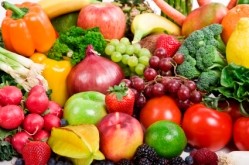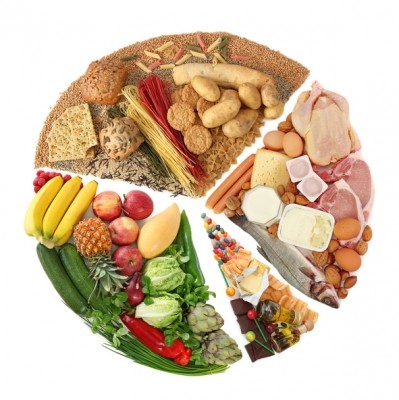Plant-based diets: Healthy for people, but what about the planet?

The study, published in the American Journal of Clinical Nutrition, examined the nutritional value of the self-reported diets of nearly 2,000 French adults and compared dietary composition with estimates of greenhouse gas (GHG) emissions generated by the ingredients’ production.
Per 100 grams, the researchers found that animal products like meat, poultry, dairy, fish and eggs were indeed associated with much higher GHG emissions than fruits, vegetables and starchy foods. However, despite containing larger amounts of plant-based foods, diets of the highest nutritional quality were not necessarily the lowest in GHG emissions.
Due to ease of transportation and storage, and relative lack of waste, the least healthy foods, like sweets and salted snacks, were associated with some of the lowest emissions on an energy basis.
The researchers used a database to estimate GHG emissions per 100 grams of each food for the 400 most commonly consumed foods within the sample population. But when they looked at what people ate to meet their energy needs, they found the ‘healthiest’ diets – defined as those high in fruit, vegetables and fish – were associated with about the same level of emissions as the least healthy diets.
They explained that it was necessary to eat far more low-energy food in order to meet daily energy needs.
“Altogether, our results therefore seem to contradict the widely accepted view that diets that are good for health are also good for the planet,” they wrote.
“This notion has progressively emerged, based on the fact that plant-based products have a lower environmental impact than do animal products and on the belief that vegetarian diets are necessarily healthy.”
Red meat was found to contribute the most carbon dioxide of any food, at 1,627 grams of carbon dioxide per 100 grams, and 857 grams per 100 kcal. On an energy basis, red meat accounted for about three times as much carbon dioxide as fruit and vegetables.
Fruits and vegetables were comparable to poultry, eggs, pork and dairy products in GHG emissions per 100 kcal.
Food production is estimated to contribute about 15-30% of GHG emissions in developed countries, according to a European Commission study.
Source: American Journal of Clinical Nutrition
“High nutritional quality is not associated with low greenhouse gas emissions in self-selected diets of French adults”
Authors: Florent Vieux, Louis-Georges Soler, Djilali Touazi, and Nicole Darmon

























